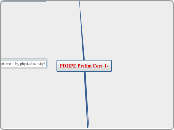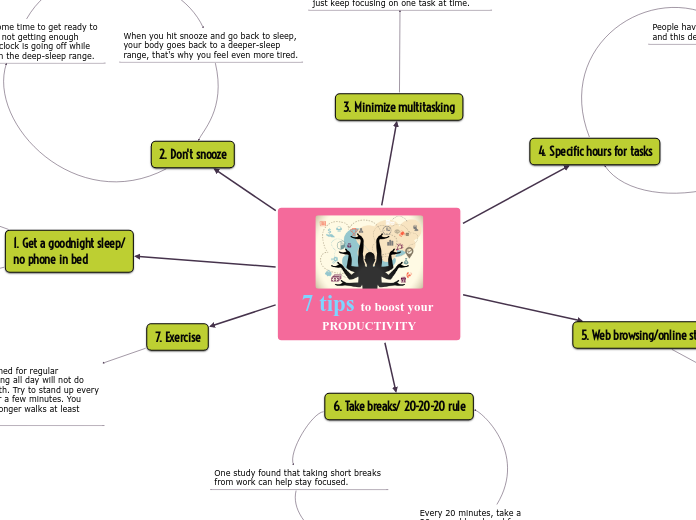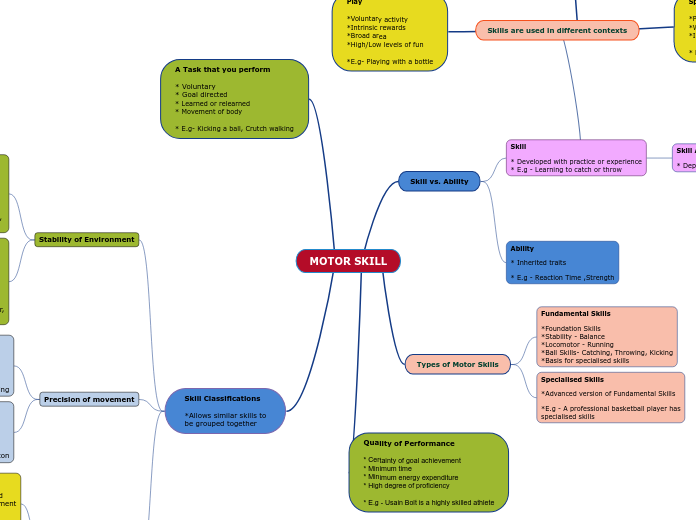PHYSICAL EDUCATION - MINDMAP
Physical Education and Recreation
Substance Use and Abuse
#3: The U.S represents 5% of the world's population and 75% of prescription drugs taken. 60% of teens who abuse prescription drugs get them free from friends and relatives.
#2: 54% of high school seniors do not think regular steroid use is harmful, the lowest number since 1980, when the National Institute on Drug Abuse started asking about perception on steroids.
#1: 6.5% of high school seniors smoke pot daily, up from 5.1% five years ago. Meanwhile, less than 20% of 12th graders think occasional use is harmful, while less than 40% see regular use as harmful (lowest numbers since 1983).
Drug use and Abuse Scenario Solving
Short - Term AND Long Term effects
Stages of Drug Use
Addiction
Recreational Use
Experimental Use
Free Of Use
Types of Drugs
Hallucinogens
Depressants
Stimulants
Consequences of Addiction
Poor Health, Lack of fitness, risk of stress or contracting diseases
Lack of Trust towards family and friends
Losing friends
Recognizing the Risks
Risk Factors AND Protective Factors
Definitions and Affects of Drugs
Sports Units
#3:The fastest racket sport in the world is badminton, with shuttlecock speeds reaching more than 200 miles per hour.
#2:A soccer ball has 32 panels; each one represents one of the 32 countries in Europe.
#1: The National Basketball League was the first pro-league, established in 1898, and it lasted only five years.
Soccer Basball
Features of the Field
Catching, Fielding
Volleyball
Learned how to Serve, Bump, and set
Hockey
Offensive/Defensive strategies performance test
Stick handling
Hockey stick features
Basketball
Getting a good grip of the ball in order to shoot well
Dribbling the basketball
Rules/Offence and Defensive Strategies
Badminton
Under/Overhand serve
Performance Test
Written Quiz
Soccer
Shooting techniques
Handling the Ball
Q/A Interview
Fitness/Fitness Theory
#3: Nearly 50% of all young people ages 12-21 are not vigorously active on a daily basis
#2: For every 1Lb Of muscle you gain, your body burns an extra 50 calories/day.
#1: Muscle is 3x more efficient at burning calories than fat.
S.M.A.R.T Exercise Planner
S – Specific
Heart Rate Lab
Calculating HR
Principles of Training
Riversibility
Ceilling Effect
Principle of Specificity
Principle of Progression
Overload Principle
The F.I.T.T Principle
Setting your own goals
Applied during class activities
Body Types
Mesmomorph
Endomorph
Ectomorph
Benefits of being Active healthy Living
Reduce risk of coronary disease
Help manage stress
Reduce risk of obeisity
Components of Fitness
Skill Related Components
Speed
Reaction
Coordination
Power
Balance
Agility
Health Related Components
Body composition
Flexibility
Streching
Yoga
Muscular endurance
Workout Wednesday Circuits
Muscular strength
Highest Lifted weight, 15Lbs
Lifting Weights
Cardio-respiratory fitness
12 min. run: Highest score of 22
Growth+Development
#3: 3 Million teens contract an STD every year.
#2: Young people, between the ages of 15 to 24, account for 50% of all new STDs, although they represent just 25% of the sexually experienced population.
#1: Estimates show that there are about 20 million new sexually transmitted infections in the United States each year.
Safer ways of having Sex without transmitting any disease
How do you get and prevent a disease
Types of Infections
Parasitic Infection
Viral Infection
Bacterial Infection
Different types of diseases
Cures/Treatment
Symptoms in men/women
An ST What? - Clinic File assignment
What are the chances of getting an STI
Body Image
Consent Video
Mental Health or Personal Safety
#3: About 20% of individuals will directly experience a mental illness during their lifetime.
#2: Approximately, 80% of individuals will be directly affected by a mental illness in family members, friends or colleagues.
#1: Majority of Sexual Assaults Take Place in Victims' Homes
On almost daily basis I try to Exercise as much as I can
Ways of Safety at Home, Work, and in Vehicle
The 3 Rules to Avoid Victimization:
Trust Your Insitincts
Avoid Risky Situations
Stay Alert
Things you can do to protect your Mental Health:
Manage stress diligently
Sleep Bountifully
Take time for yourself reguarly
Exercise adequately
Eat Healthy
Mental Health is Important because it affects:
Your Ability to Communicate
Your Classroom Conduct
Your Concentration
Your Attentiveness
Conflict Management
Scenario Solving
Staying Physically fit can Help reduce the risk of Stress, Anxiety, and Depression.
Nutrition
FACTS
#3: Not all Sugars are Bad, although sugar has a bad reputation, but not all sugars are harmful. Fruit has sugar in the form of fructose and milk has sugar as lactose. These naturally occurring sugars from whole foods are a part of a healthy diet.
#2: Some fats are Good, all fats have 9 calories/ per gram, but not all fats are created equal. Fats, from vegetable oils, avocados, nuts and cold-water fish, protect your heart and can lower your risk of type 2 diabetes.
#1: Your body uses the carbohydrates it needs right away and then converts the rest into glycogen, a complex type of polyacrylamide carbohydrate.
Weight Maintenance
Energy stored, that doesn't get used up in an activity or in basic metabolism will be stored as fat.
Looking at how much Energy your getting from your food, and how much the body takes out the energy by digesting
Nutrition Terms
Minerals
Vitamins
Fats
Proteins
Carbohydrates
Calorie
7 Benefits of Nurtrition
Improved Body Chemistry
Increased Strength and Muscle Mass
Improved Cardiovascular Health
Consistent Weight Control
Improved Psychological Health
Slow Down the Aging Process
An improved quality of life
Healthy Body Image
Food Label Lab
Canadian Food Guide
Food Groups
Food Tracker Analysis









